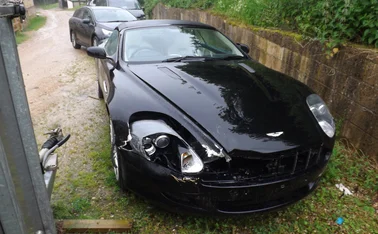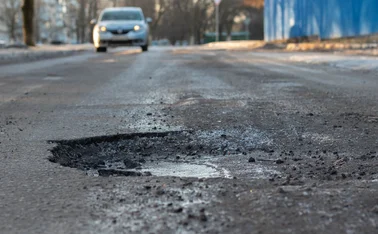
Analysis: Insurers under the spotlight over institutional child abuse claims

Need to know
- The Independent Inquiry into Child Sexual Abuse was set up in 2015, to investigate increasing evidence of abuse in institutions
- Its Accountability and Reparations inquiry has involved seminars and a fifteen day hearing, in which lawyers, insurers, members of public services, local authorities and survivors of abuse have testified on five non-recent case studies ranging back to the 1960s
- IICSA is expected to publish a report later this year, which could have wide-ranging ramifications on the handling of CSA claims
- Issues around limitation have been closely scrutinised, with lawyers predicting that IICSA may recommend a redress scheme, though what this may look like is a point of conflict
- A public liability insurance register, similar to the industrial disease register has been touted as a way of assisting survivors with finding out who to claim against
- Lawyers suggest that mandatory public liability insurance for organisations caring for children could follow, as a way of preventing a lack of culpable liability and funds for survivors to claim compensation
Insurers have been forced to defend how they handled non-recent child abuse claims, in the latest stage of a high profile inquiry
The Independent Inquiry into Childhood Sexual Abuse was set up in March 2015, with a remit to investigate increasing evidence of child sexual abuse in institutions in England and Wales, and to make recommendations for change. The inquiry has 13 ongoing investigations. Its funding gives some idea of the scope of these. While it has run under budget, in 2016/17 by over £10m, available accounts show that in total its expenditure up to 2017 was £35.53m.
Over 15 sessions across December 2018 and January, insurers, claimant lawyers, defendant lawyers, members of the authorities and public services and survivors of abuse have voluntarily testified on one strand of its inquiry: accountability and reparations.
RSA UK technical claims manager Stephen Bellingham and complex claims director Carolyn McKenzie, Zurich UK chief claims officer David Nichols and Municipal
Mutual Insurance claims and reinsurance manager Rod Luck were among those who spoke at the inquiry.
With IICSA aiming to publish a report later this year when it has fully considered the testimony, this is expected to have wide ranging consequences for how institutional CSA claims, including group actions, are dealt with in the future.
Survivors
Diminished earnings owing to mental health problems or disruption to education, difficulties with relationships, and challenges with figures of authority are common struggles for adult survivors of child sexual abuse. While a survivor may be coping well, going through a claim can be challenging. IICSA invited survivors to share their experiences.
A National Association for People Abused in Childhood spokesperson told Post: “The thing that is difficult for survivors is they may be functioning very effectively in areas of their life, because they have sort of buried the abuse and they have found coping mechanisms, but the trouble with making a claim in relation to abuse is that it is digging up the trauma.”
Insurers respond
A Zurich spokesperson said: “Zurich fully supports the objectives of the Independent Inquiry into Childhood Sexual Abuse. Child Sexual Abuse claims are deeply distressing for victims and survivors, and the insurance industry has an important part to play in ensuring that they are treated sensitively and with compassion throughout the process.
“Zurich is a major insurer of local authorities and other organisations in the UK and because of our experience in this area and the case studies chosen by the Inquiry, we applied for core participant status in the Accountability and Reparations workstream. Being a core participant in this investigation means we can contribute openly to the Inquiry to help shape the future of abuse claims management.
“We have already made some significant improvements to our own CSA claims handling processes including establishing a specialist team, training informed by expert advice from the charity sector and comprehensive guidelines tailored specifically to CSA claims. However, the inquiry has an important role to play in working with all parties to make further improvements.”
RSA and MMI did not respond to requests for comment.
There are multiple avenues open to potential claimants. Some survivors have been able to claim through the broader Criminal Injuries Compensation Authority, but others have suffered setbacks. One survivor with a criminal record, testified: “I would like to make an application to CICA, but I have had so many knockbacks in terms of trying to seek compensation that I am not sure that I would be successful. Given the bad experiences I have had with the civil claims procedure, I am not at all confident that I would be able to navigate the application process or to achieve any kind of outcome.”
Applicants are unable to make claims with CICA if they have had a settlement elsewhere. Survivors who testified about the civil litigation process found it challenging.
One successful claimant, known as A21, was a victim of abuse prior to 1976 at Bryn Alyn, a care home in North Wales.
They described the claims process and subsequent cross-examination as it was around twenty years ago: “It just came across as if you were lying, basically, although you’re not directly accused – or I wasn’t directly accused of that. But, again, it was the, ‘Well, we don’t believe you. Reading between the lines, this is not true, is it?’, sort of thing, which makes it even more difficult.”
In this particular case, presented as a bad example of how claimants had been dealt with, RSA was later found not to have been the insurer prior to 1976. This meant that the true defendant insurer was Eagle Star, now owned by Zurich. By the time the claimant received their damages, they had roughly halved from the original ruling.
“It’s the fact that somebody’s saying, ‘Well, no, we don’t think you deserve this; you deserve that’, because there’s always that element of doubt, for some reason, you think, ‘Well, why?’,” A21 said.
Claims handling
During the hearing, the claims handling process was scrutinised. Bellingham admitted to having a team of three dedicated handlers and no CSA-specific formalised documents or external statements. Mckenzie added during her testimony that the insurer sees on average 130 CSA claims a year, a “small volume of claims relative to other insurers”.
Redress schemes
The Irish Redress Scheme opened on 16 December 2002. There were 4000 applications initially anticipated at an expected cost of €300m (£268m). The Irish Scheme is still ongoing with 16,750 applications finalised to date – at a cost of approximately €1.4bn (£1.3bn).
The Australian Redress Scheme opened on 1 July 2018. It will be open for 10 years. The Australian Government expects 60,000 to 65,000 applications at an estimated cost of A$4bn (£2.2bn).
Source: BLM
MMI sees on average 250 new claims a year, according to Luck. It sold much of its renewals business to Zurich after it went into run off in 1992.
Zurich has bolstered its team and training in recent years, owing to an upward trend in CSA claims. It has seen a “steady train” of around 400 to 450 CSA claims a year, but expected this to increase to 600 in 2018 according to Nichols, which he tentatively attributed to “more awareness”. He estimated that between 30% and 40% of CSA claims put to Zurich are successful.
A central theme of the hearing has been the barrier of limitation for CSA claims, which insurers said they have been working towards using less as a defence.
Nichols added: “In terms of trial, inevitably, we do still have claims that go to trial. I would hope, although it is work in progress, that limitation is a less frequently argued point and, if it is argued, it would be more based on the information that we are able to gather. That’s really what that’s trying to get to.”
Bellingham confirmed to the inquiry that from RSA’s perspective it remains “good practice” to send out letters informing claimants of potential limitation issues.
Ecclesiastical is involved in CSA claims more prominently in separate strands of IICSA investigations. It has taken a different stance on limitation and was touted as an example during the hearing. Post understands it runs limitation arguments in under 2% of cases.
On its published guiding principles, an Ecclesiastical spokesperson said: “One of these principles is our commitment regarding the use of limitation as a defence, which is that limitation should be pleaded as a defence to a claim sparingly in relation to physical and sexual abuse claims.”
In Scotland, limitation ceased to apply to CSA claims with the Limitation (Childhood Abuse) (Scotland) Act, of October 2017. The same is true in parts of Canada and Australia.
Lawyers expect IICSA could recommend a similar stance in England and Wales.
Richard Scorer, claimant firm Slater and Gordon partner, said: “We have a situation where if you were abused a few miles north of Carlisle, there is no time bar for bringing a claim. But if you are abused in England and Wales there is a time bar. That doesn’t really make sense.”
Abuse claims: in numbers
£35.53m: Total IICSA expenditure for 2015 to 2017
13 ongoing investigations
Average yearly CSA claims
RSA: 130
MMI: 250
Zurich: 400 to 450
Zurich predicts this will rise to 600 for the next full year.
11 million: Estimated minimum of adult survivors of contact and non-contact child sexual abuse in the UK
It is estimated that only one in eight victims of sexual abuse come to the attention of statutory authorities
The National Association for People Abused in Childhood saw call attempts to its support line rise from 55,393 in 2014/15, to 73,301 in 2015/16, to 89,960 in 2016/17
Sources: Children’s Commissioner 2015; Radford, 2011; NAPAC
However, some worry that barring limitation for CSA claims would not have the intended effect. Claimant lawyer Alan Collins, partner at Hughes James, said: “People need to be very careful about what they wish for, because in Scotland they have recently abolished limitation in sexual abuse cases, but there is still the court’s inherent right to dismiss a claim based on prejudice.”
Redress
A redress scheme that would see claimants able to access compensation without having to get involved in the litigation process, is widely seen as a possible recommendation. Lambeth Council opened its two yearlong redress scheme in January 2018, while Ireland and Australia have both set up redress schemes for survivors of child sexual abuse.
However, claimant and defendant lawyers are in agreement that there is no easy, one-size-fits-all approach.
“It needs to be a lot more sophisticated, with compulsory buying into. So the insurance industry would have to pay into it, organisations would have to pay in, the state would have to pay in. There would need to be a mechanism to ensure offenders pay into it. Otherwise it is just the poor old taxpayer paying for other people’s offending and responsibilities,” Collins added.
Association of Child Abuse Lawyers president Peter Steadman suggested “thousands” of potential claimants are turned away every year, due to limitation and other factors. It is estimated there are over 11 million survivors of contact and non-contact child sexual abuse in the UK.
It is difficult to estimate how much a redress scheme could cost, particularly as quantum - the amount of compensation – would likely need to be reassessed.
On the Lambeth scheme, Paula Jefferson, head of abuse and neglect practice group at defendant law firm BLM, said: “Some people who were abused, but were there for a much shorter period of time, end up getting less than those who are just saying they were there and put in harm’s way. If you think that this was across not just local authorities, but also faith and youth organisations, healthcare. Where do you draw the line?
“What we really would not want to get into a scenario is a sort of payment protection insurance type situation of people phoning up and saying there’s a redress scheme for abuse, and were you abused as a child?”
In the case of MMI, a scheme has been set up which members pay into. Scheme creditors pay in a levy fee of 25%, up from 15% prior to April 2016. However, its pot is depleting over time.
On making particular arrangements for CSA claims, Luck told the hearing: “If MMI were to choose to, say, work outside those realms [of its scheme] on abuse claims, that, in essence, could have a knock-on effect to other scheme creditors that don’t have abuse claims potentially with an increase in levy on those. So we follow the civil procedures, we follow the current law, we follow the terms of our policy. That may sound strict, but it does mean for all our creditors everyone gets the same treatment.”
Public liability
Such as with A21’s Bryn Alyn case alluded to earlier, claims across the board have been further complicated by a lack of information due to missing records, or a lack of funds from dearth of public liability cover.
In its April 2018 interim report, IICSA recommended the Association of British Insurers look into forming a register for public liability insurance, similarly to industrial disease. It is understood that the ABI will respond within the coming months.
In cases, institutions had no insurance for a period where abuse occurred, which has led to claimant lawyers turning away survivors. There have also been calls to make public liability insurance for those working with children mandatory, as is the case with employers’ liability and motor insurance.
Broker sources have suggested that there would need to be a set definition of ‘working with children’. Basis of cover would also have to be constructed carefully. In addition whether a policy is made on a claims made basis, it is possible that insurers would not be willing to grant cover without a retroactive date limit.
Compulsory cover would also require statutory intervention, which would require the government to accept any recommendation made by the inquiry.
The inquiry is expected to publish its report later this year, and it could lead to a seismic shift in how CSA claims are dealt with. The hearing has already had the effect of opening eyes.
ACAL’s Steadman added: “I got quite depressed. I thought we were helping people. That’s why you do this type of work, because you want to help people and make some improvement to their lives. I came away very depressed that we weren’t helping people at all, that we had to find something more effective that helps them and makes them feel better.”
Support: NAPAC’s Free telephone support line for adult survivors of child abuse, Support Line 0808 801 0331 or check the website at www.napac.org.uk
Only users who have a paid subscription or are part of a corporate subscription are able to print or copy content.
To access these options, along with all other subscription benefits, please contact info@postonline.co.uk or view our subscription options here: http://subscriptions.postonline.co.uk/subscribe
You are currently unable to print this content. Please contact info@postonline.co.uk to find out more.
You are currently unable to copy this content. Please contact info@postonline.co.uk to find out more.
Copyright Infopro Digital Limited. All rights reserved.
As outlined in our terms and conditions, https://www.infopro-digital.com/terms-and-conditions/subscriptions/ (point 2.4), printing is limited to a single copy.
If you would like to purchase additional rights please email info@postonline.co.uk
Copyright Infopro Digital Limited. All rights reserved.
You may share this content using our article tools. As outlined in our terms and conditions, https://www.infopro-digital.com/terms-and-conditions/subscriptions/ (clause 2.4), an Authorised User may only make one copy of the materials for their own personal use. You must also comply with the restrictions in clause 2.5.
If you would like to purchase additional rights please email info@postonline.co.uk








